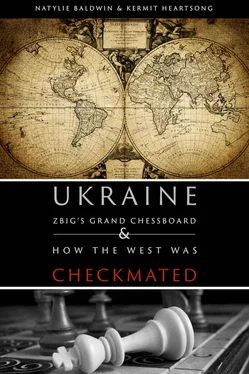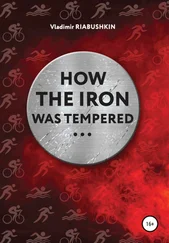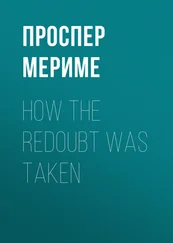Kermit Heartsong - Ukraine - ZBIG's Grand Chess Board & How The West Was Checkmated
Здесь есть возможность читать онлайн «Kermit Heartsong - Ukraine - ZBIG's Grand Chess Board & How The West Was Checkmated» весь текст электронной книги совершенно бесплатно (целиком полную версию без сокращений). В некоторых случаях можно слушать аудио, скачать через торрент в формате fb2 и присутствует краткое содержание. Год выпуска: 2015, Жанр: Политика, на английском языке. Описание произведения, (предисловие) а так же отзывы посетителей доступны на портале библиотеки ЛибКат.
- Название:Ukraine: ZBIG's Grand Chess Board & How The West Was Checkmated
- Автор:
- Жанр:
- Год:2015
- ISBN:нет данных
- Рейтинг книги:4 / 5. Голосов: 1
-
Избранное:Добавить в избранное
- Отзывы:
-
Ваша оценка:
- 80
- 1
- 2
- 3
- 4
- 5
Ukraine: ZBIG's Grand Chess Board & How The West Was Checkmated: краткое содержание, описание и аннотация
Предлагаем к чтению аннотацию, описание, краткое содержание или предисловие (зависит от того, что написал сам автор книги «Ukraine: ZBIG's Grand Chess Board & How The West Was Checkmated»). Если вы не нашли необходимую информацию о книге — напишите в комментариях, мы постараемся отыскать её.
Ukraine: ZBIG's Grand Chess Board & How The West Was Checkmated — читать онлайн бесплатно полную книгу (весь текст) целиком
Ниже представлен текст книги, разбитый по страницам. Система сохранения места последней прочитанной страницы, позволяет с удобством читать онлайн бесплатно книгу «Ukraine: ZBIG's Grand Chess Board & How The West Was Checkmated», без необходимости каждый раз заново искать на чём Вы остановились. Поставьте закладку, и сможете в любой момент перейти на страницу, на которой закончили чтение.
Интервал:
Закладка:
It was a successful mission and Massie became a regular at the White House from 1984 to 1988. During that time, she observed — and helped to facilitate — Reagan's evolution on how he viewed the Soviet Union and the Russian people. By educating the president on the cultural history of Russia and the nuances of Soviet life, she helped Reagan to gain enough wisdom by the time Gorbachev came to office to treat the new Soviet leader with respect, to keep an open mind while listening to a variety of views on the Soviet issue, and — despite his general loathing of communism and the Soviet system — to recognize Russia's contributions to the world and the fact that the Soviet Union had its own legitimate national interests.
By the time of his 1986 summit with Gorbachev in Iceland, Reagan confessed to Massie that his deepest wish for humanity was “to get rid of those damn nuclear weapons” (Krasnow 2009; Malinkin 2008).
Nevertheless, Reagan and Gorbachev’s initial meetings in 1985 did not reflect a terribly auspicious beginning in terms of bridging the chasm between the two nations. But a proposal by Gorbachev calling for complete nuclear disarmament by 1999 got Reagan’s attention. Though there was suspicion that this proposal may have been a propaganda ploy on Gorbachev's part, it provided a critical opening between the two leaders. The subsequent Chernobyl catastrophe reinforced the danger of nuclear technology to the Soviet leadership and represented another expensive disaster for which limited funds had to be invested. This provided even more incentive toward a negotiated settlement (Matlock 2010).
According to Matlock (2010), Reagan was very careful during negotiations with Gorbachev to allow him to come to the conclusion that many of the proposed changes were in the Soviet Union’s interest due to the economic damage resulting from the military budget necessitated by the Cold War. If Gorbachev would not have been able to negotiate the Cold War's end and the need for allocation of massive resources toward the military, he would not have been able to implement the reforms needed for glasnost and perestroika.
Reagan also was careful never to frame the situation as a victory or defeat. Although George H. W. Bush apparently believed in private that Russia had been defeated, he followed Reagan's approach publicly until his re-election campaign when he declared to the American electorate that, “We won the Cold War” (Matlock 2010; Sarotte 2010).
The Failure of the Peace Dividend
As the end of the Cold War beckoned in the late 1980s and, along with it, the potential for redirection of resources to improve the living standards of communities across America, Seymour Melman — an expert on the military industrial complex (MIC) — noted that 50 percent of the discretionary federal budget at that time went to the Pentagon. Today that percentage is even higher at 55 percent. Meanwhile, 3 percent is allotted to “international affairs,” meaning that some portion of that 3 percent goes to diplomacy, which speaks volumes about our leaders' priorities and approach to international relations (Melman 1990; National Priorities Project).
In comparison, Russia’s current defense allotment represents 20 percent of its overall budget (Keck 2014). At the same time, the US’s spending on defense comprises 39 percent of the world’s total military expenditure versus 5.2 percent for Russia (Global Issues 2012). For further perspective, it should be kept in mind that Russia has a history of insecurity on its borders, including World War II, the memory of which, including the loss of 27 million of its people—19 million of them civilians — and the destruction of a significant portion of the country is still strong in the Russian consciousness (Parsons 2014). On the other hand, the US has not had a war on its soil for 150 years and the Civil War did not involve a foreign invasion. Moreover, the US has a vast ocean on either side for protection and relatively stable and friendly neighbors to its north and south.
What all that needless investment into militarism ultimately translates into is investment not made into the infrastructure for American citizens and their day-to-day needs. To illustrate this point, Melman also discussed the state of American domestic infrastructure by 1990 and how it had suffered from the diversion of resources into the MIC:
The American ruling class, by 1990, has become a state/corporate managerial entity. Together they control the military-industrial complex….The war economy, in the service of extending the decision power and wealth of America’s state and corporate managers, has been consuming the US civilian infrastructure. Roads, bridges, the water supply, waste disposal systems, housing, medical care facilities, schools are in disrepair from coast to coast. (Melman 1990)
Instead of seizing the opportunity provided by the end of the Cold War and investing in the improvement of Americans’ lives, we have continued to feed the same amounts or more into the voracious military economy with our domestic infrastructure in worse shape than ever. The American Society of Civil Engineers Infrastructure Report Card for the US in 2013 was a D+; meanwhile, the New York Times recently reported that the federal government will be investing as much as $1 trillion in modernizing our nuclear weapons arsenal over the next 30 years, using the confrontation with Russia over Ukraine as partial justification (Broad and Sanger 2014).
The early stages of another negative trend was observed by Melman (1990) with respect to the deindustrialization of the American economy whereby the nation gradually loses the ability to produce essential goods and to repair the basic infrastructure needed to create and repair those essential goods. For example, in his 1990 and 2001 works, Melman described how the US was becoming dependent upon foreign production of basic machinery and tools that were no longer made in the US (Melman 1990; Melman 2001). This deindustrialization leads to loss of living wage jobs and loss of national independence and self-sufficiency in important areas of the economy. That trend has accelerated in the twenty-four years since and all of the social consequences one would likely expect are visible to most Americans, with the exception of the most wealthy and insulated.
One of the more pernicious consequences of this deindustrialization is that the lack of living wage jobs that used to be available to those with little or no post-secondary education drives more youth into the professional military as they seek a stable income and educational opportunities, reinforcing the militarist feedback loop.
One of the strangest blind spots that American elites seem to have is what their own system has in common with some of the failed aspects of the Soviet Union, with its heavy burden of militarism and empire on its people and economy. They somehow seem to think the US will avoid the same fate.
chapter 2
Strange Bedfellows
the Grand Chess Board, Neocons, and R2P
Zbigniew Brzeziński’s Grand Chess Board
Before getting into a deconstruction of The Grand Chessboard , it’s important to first take a step back and provide some perspective on who Zbigniew Brzeziński is and why his worldview is particularly relevant to understand in terms of the current events in Ukraine. Brzeziński’s view seems to be partly derived from a deep-rooted and irrational antipathy toward Russia — irrational in the sense that it persists despite what Russia actually is or does in objective reality.
Brzeziński was born in Warsaw, Poland in 1928 but his paternal family reportedly originated from Galicia, which was once considered eastern Poland but is now part of western Ukraine. His father was a Polish diplomat who served in Germany from 1931 to 1935 and then served in the Soviet Union from 1936 to 1938 in the midst of Stalin’s Great Purge. He was stationed in Canada when both Germany and the Soviet Union invaded Poland in 1939. Poland was later placed in the Soviet sphere of influence at the conclusion of WWII; hence, the Brzeziński family remained in Canada.
Читать дальшеИнтервал:
Закладка:
Похожие книги на «Ukraine: ZBIG's Grand Chess Board & How The West Was Checkmated»
Представляем Вашему вниманию похожие книги на «Ukraine: ZBIG's Grand Chess Board & How The West Was Checkmated» списком для выбора. Мы отобрали схожую по названию и смыслу литературу в надежде предоставить читателям больше вариантов отыскать новые, интересные, ещё непрочитанные произведения.
Обсуждение, отзывы о книге «Ukraine: ZBIG's Grand Chess Board & How The West Was Checkmated» и просто собственные мнения читателей. Оставьте ваши комментарии, напишите, что Вы думаете о произведении, его смысле или главных героях. Укажите что конкретно понравилось, а что нет, и почему Вы так считаете.











